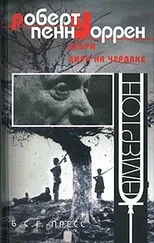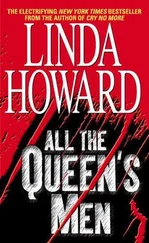Роберт Уоррен - All the king's men
Здесь есть возможность читать онлайн «Роберт Уоррен - All the king's men» весь текст электронной книги совершенно бесплатно (целиком полную версию без сокращений). В некоторых случаях можно слушать аудио, скачать через торрент в формате fb2 и присутствует краткое содержание. Жанр: Современная проза, на английском языке. Описание произведения, (предисловие) а так же отзывы посетителей доступны на портале библиотеки ЛибКат.
- Название:All the king's men
- Автор:
- Жанр:
- Год:неизвестен
- ISBN:нет данных
- Рейтинг книги:4 / 5. Голосов: 1
-
Избранное:Добавить в избранное
- Отзывы:
-
Ваша оценка:
- 80
- 1
- 2
- 3
- 4
- 5
All the king's men: краткое содержание, описание и аннотация
Предлагаем к чтению аннотацию, описание, краткое содержание или предисловие (зависит от того, что написал сам автор книги «All the king's men»). Если вы не нашли необходимую информацию о книге — напишите в комментариях, мы постараемся отыскать её.
All the king's men — читать онлайн бесплатно полную книгу (весь текст) целиком
Ниже представлен текст книги, разбитый по страницам. Система сохранения места последней прочитанной страницы, позволяет с удобством читать онлайн бесплатно книгу «All the king's men», без необходимости каждый раз заново искать на чём Вы остановились. Поставьте закладку, и сможете в любой момент перейти на страницу, на которой закончили чтение.
Интервал:
Закладка:
"She continued to stare, and finally replied hesitantly, 'I do not know.'
" 'You thought it was–' I began, but before I could utter the words she had flung herself upon me, clasping me in desperation like a person frantic with drowning, and ejaculating, 'No, no, it does not matter what I thought, you are here, you are here!' And she drew my face down and pressed her lips against mine to stop my words. Her lips were cold, but they hung upon mine.
"I too was perfectly cold, as of a mortal chill. And the coldness was the final horror of the act which we performed, as though two dolls should parody the shame and filth of man to make it doubly shameful.
"After, she said to me, 'Had I not found you here tonight, it could never have been between us again.'
" 'Why?' I demanded " 'It was a sign,' she said.
" 'A sign?' I demanded.
" 'A sign that we cannot escape, that we–' and she interrupted herself, to resume, whispering fiercely in the dark–'I do not want to escape–it is a sign–whatever I have done is done.' She grew quiet for a moment, then she said, 'Give me your hand.'
"I gave her my right hand. She grasped it, dropped it, and said, 'The other, the other hand.'
"I held it out, across my own body, for I was sitting on her left. She seized it with her own left hand, bringing her hand upward from below to press my hand flat against her bosom. Then, fumblingly, she slipped a ring upon my finger, the finger next to the smallest.
" 'What id that?' I asked.
" 'A ring,' she answered, paused, and added, 'It is his ring.'
"Then I recalled that he, my friend, had always worn a wedding ring, and I felt the metal cold upon my flesh. 'Did you take it off of his finger?' I asked, and the thought shook me.
" 'No,' she said.
" 'No?' I questioned.
" 'No,' she said, ' he took it off. It was the only time he ever took it off.'
"I sat beside her, waiting for what, I did not know, while she held my hand pressed against her bosom. I could feel it rise and fall. I could say nothing.
"Then she said, 'Do you want to know how–how he took it off?'
" 'Yes,' I said in the dark, and waiting for her to speak, I moved my tongue out upon my dry lips.
" 'Listen,' she commanded me in an imperious whisper, 'that evening after–after it happened–after the house was quiet again, I sat in my room, in the little chair by the dressing table, where I always sit for Phebe to let down my hair. I had sat there out of habit, I suppose, for I was numb all over. I watched Phebe preparing the bed for the night.' (Phebe was her waiting maid, a comely yellow wench somewhat given to the fits and sulls.) 'I saw Phebe remove the bolster and then look down at a spot where the bolster had lain, on my side of the bed. She picked something up and came toward me. She stared at me–and her eyes, they are yellow, you look into them and you can't see what is in them–she stared at me–a long time–and then she held out her hand, clenched shut and she watched me–and then–slow, so slow–she opened up the fingers–and there lay the ring on the palm of her hand–and I knew it was his ring but all I thought was, it is gold and it is lying in a gold hand. For Phebe's hand was gold–I had never noticed how her hand is the color of pure gold. Then I looked up and she was still staring at me, and her eyes were gold, too, and bright and hard like gold. And I knew that she knew.'
" 'Knew?" I echoed, like a question, but I knew, too, now. My friend had learned the truth–from the coldness of his wife, from the gossip of servants–and had drawn the gold ring from his finger and carried to the bed where he had lain with her and had put it beneath her pillow and had gone down and shot himself but under such circumstances that no one save his wife would ever guess it to be more than an accident. But he had made one fault of calculation. The yellow wench had found the ring.
" 'She knows,' she whispered, pressing my hand hard against her bosom, which heaved and palpitated with a new wildness. 'She knows–and she looks at me–she will always look at me.' Then suddenly her voice dropped, and a wailing intonation came into it: 'She will tell. All of them will know. All of them in the house will look at me and know–when they hand me the dish–when they come into the room–and their feet don't make any noise!' She rose abruptly, dropping my hand. I remained seated, and she stood there beside me, her back toward me, the whiteness of her face and hands no longer visible, and to my sight the blackness of her costume faded into the shadow, even in such proximity. Suddenly, in a voice which I did not recognize for its hardness, she said in the darkness above me, 'I will not abide it, I will not abide it!' Then she turned, and with a swooping motion leaned to kiss me upon the mouth. Then she was gone from my side and I heard her feet running up the gravel of the path. I sat there in the darkness for a time longer, turning the ring upon my finger."
After that meeting in the summerhouse, Cass did not see Annabelle Trice for some days. He learned that she had gone to Louisville, where, he recalled, she had close friends. She had, as was natural, taken Phebe with her. Then he heard that she had returned, and that night, late, went to the summerhouse in the garden. She was there, sitting in the dark. She greeted him. She seemed, he wrote later, peculiarly cut off, remote, and vague in manner, like a somnambulist or a person drugged. He asked about her trip to Louisville, and she replied briefly that she had been down the river in Paducah, and she said that she had none there. Then, all at once, she turned on him, the vagueness changing to violence, and burst out, "You are prying–you are prying into my affairs–and I will not tolerate it." Cass stammered out some excuse before she cut in to say, "But if you must know, I'll tell you. I took her there."
For a moment Cass was genuinely confused.
"Her?" he questioned.
"Phebe," she replied, "I took her to Paducah, and she's gone."
"Gone–gone where?"
"Down the river," she answered, repeated, "down the river," and laughed abruptly, and added, "and she won't look at me any more like that."
"You sold her?"
"Yes, I sold her. In Paducah, to a man who was making up a coffle of Negroes for New Orleans. And nobody knows me in Paducah, nobody knew I was there, nobody knows I sold her, for I shall say she ran away into Illinois. But I sold her. For thirteen hundred dollars."
"You got a good price," Cass said, "even for a yellow girl as sprightly as Phebe." And, as he reports in the journal, he laughed with some "bitterness and rudeness," though he does not say why.
"Yes," she replied, "I got a good price. I made him pay every penny she was worth. And then do you know what I did with the money, do you?"
"No."
"When I came off the boat at Louisville, there was an old man, a nigger, sitting on the landing stage, and he was blind and picking on a guitar and singing 'Old Dan Tucker.' I took the money out of my bag and walked to him and laid it in his old hat."
"If you were going to give the money away–if you felt the money was defiled–why didn't you free her?" Cass asked.
"She'd stay right here, she wouldn't go away, she would stay right here and look at me. Oh, no, she wouldn't go away, for she's the wife of a man the Motley's have, their coachman. Oh, she'd stay right here and look at me and tell, tell what she knows, and I'll not abide it!"
Then Cass said, "If you had spoken to me I would have bought the man from Mr. Motley and set him free, too."
"He wouldn't have sold," she said, "the Motleys won't sell a servant."
"Even to be freed?" Cass continued, but she cut in, "I tell you I won't have you interfering with my affairs, do you understand that? And she rose from his side and stood in the middle of the summerhouse, and he saw the glimmer of her face in the shadow and heard her agitated breathing. "I thought you were fond of her," Cass said.
Читать дальшеИнтервал:
Закладка:
Похожие книги на «All the king's men»
Представляем Вашему вниманию похожие книги на «All the king's men» списком для выбора. Мы отобрали схожую по названию и смыслу литературу в надежде предоставить читателям больше вариантов отыскать новые, интересные, ещё непрочитанные произведения.
Обсуждение, отзывы о книге «All the king's men» и просто собственные мнения читателей. Оставьте ваши комментарии, напишите, что Вы думаете о произведении, его смысле или главных героях. Укажите что конкретно понравилось, а что нет, и почему Вы так считаете.





![Роберт Уоррен - Рассказы [Компиляция]](/books/419993/robert-uorren-rasskazy-kompilyaciya-thumb.webp)


